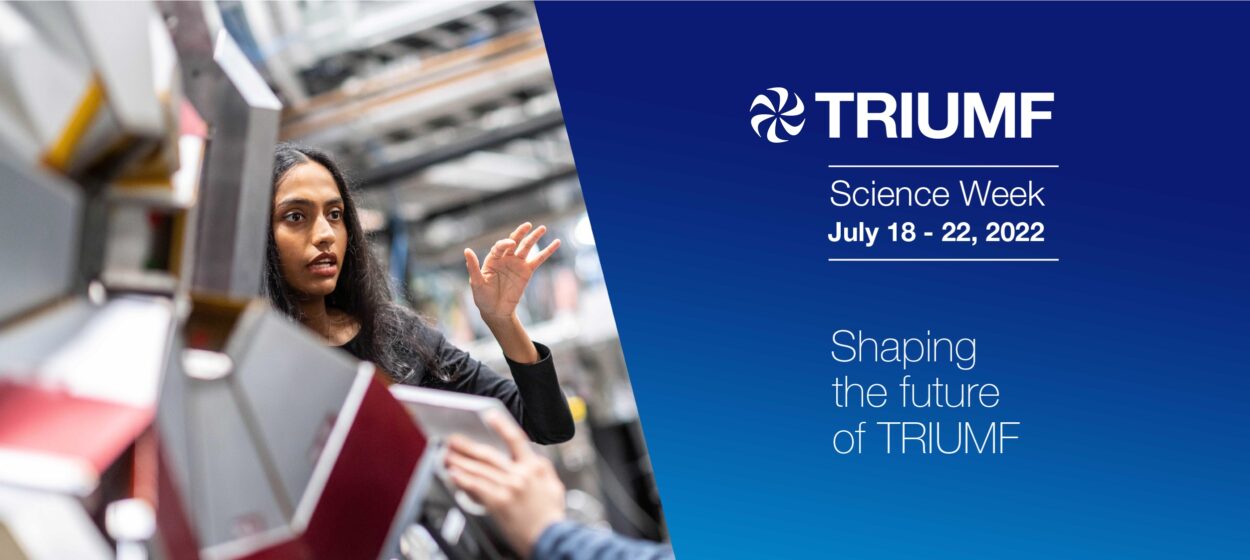As part of its future vision exercise, TRIUMF is engaging and strengthening new research opportunities in sustainable development. Abdulsalam MAHMUD reports.
This was revealed at last year’s TRIUMF Science Week, an annual conference-like event which brings together TRIUMF staff, users, visitors, and students.
TRIUMF is Canada’s particle accelerator centre. As a national laboratory with 21 member
universities, and many collaboration agreements around the world, it forms a national and
international research network.
TRIUMF Science Week
Held between July 18 to 22, 2022, in Vancouver, Canada, the Science Week featured three main program streams:
- Celebrate recent science from the past year and its achievements and articulate
the science drivers for our current program; - Collaborate on major science directions and new initiatives for the next 5-Year Plan
with our national and international collaborators, partner institutions and universities; - Connect through ample networking opportunities for community, students, and
postdocs. Recognizing the impact of the pandemic in recent years, special emphasis
in the Science Week 2022 program was placed on engagements for students.
Events during Science Week included social and professional networking opportunities, a
first of its kind Augmented & Virtual reality poster session, a 3-minute Let’s Talk Science
competition, and a Networking session on “Roadmaps to Success in Research and
Academia”.
Strengthening new research opportunities
As part of its future vision exercise, TRIUMF is engaging and strengthening new research
opportunities in sustainable development. A dedicated panel discussion on “Basic Sciences
and Sustainable Development” took place during Science Week 2022. The four panelists
taking part in the discussion were:
• Prajval Shastri – Vice-Chair of IYBSSD2022
• Nigel Smith, Executive Director & CEO of TRIUMF
• Hamid Aït Abderrahim – Deputy Director General of SCK-CEN
• Luca Egoriti – TRIUMF and University of British Columbia PhD student
The session highlighted the International Year of Basic Science and Sustainable Development, which had its official kick-off on July 8th, 2022. The discussion was moderated
by TRIUMF Innovations President & CEO, Kathryn Hayashi, with brief opening remarks
from each panelist. The panel explored the role of basic science in meeting the global
challenges surrounding sustainability.
As a primary player in the Canadian basic science ecosystem, TRIUMF is formulating its
Five-Year Plan within a 20-Year Vision to strengthen new research opportunities with
respect to environmental challenges. The panel recognized the opportunity to use
TRIUMF’s research capabilities, expertise, and infrastructure to help develop solutions to
global climate and sustainability challenges.
The main topics addressed by the panel discussion included:
• What are the main themes that guide the IYBSSD initiatives and what is the IYBSSD
timeline?
• What is TRIUMF’s role with respect to IYBSSD and Agenda 2030?
• What are the potential roles for basic science and in particular in the area of
accelerator technology in supporting Agenda 2030 and sustainable development?
What are the major challenges?
• What is the SCK-CEN’s mission with respect to climate change and sustainable
development?
• What is the view of the next generation of scientists at TRIUMF?
Panelists identified and discussed areas where TRIUMF expertise can be applicable to
sustainable development.
TRIUMF Science Week 2022 also included a second panel discussion on “Changing the
narrative: exploring action-focused EDI work at TRIUMF”. Equity, Diversity and Inclusion
(EDI) is a key area covered in the inaugural 20-Year Vision for TRIUMF and an integral part
of developing TRIUMF’s next 5-Year Plan.
Scientists, researchers and scientists
Students, early career researchers and scientists in Canada and abroad were actively
involved in TRIUMF Science Week 2022. Various channels to promote the event were
used, including research community and TRIUMF Users’ groups mailing lists, as well as
social media platforms maintained by the TRIUMF Communications team. In addition, EDI
considerations were applied in selecting our invited speakers, resulting in equal
representation of men and women speakers for the event.
The local organizing committee consisted in 50% of members who identify with at least one of the four designated groups as defined by the Canadian Employment Equity Act (women, Indigenous Peoples, persons with disabilities and visible minorities), and come from diverse ethnic groups (North American, European, and Asian descent). The team was selected to cover a wide range of research backgrounds including but not limited to nuclear physics, particle physics, condensed matter, chemistry, biochemistry and theory.
This report was made out of the TRIUMF’s Science Week REPORT.







